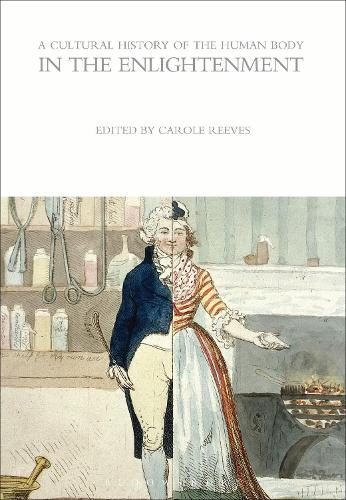
A Cultural History of the Human Body in the Enlightenment
(Paperback)
Available Formats
Publishing Details
A Cultural History of the Human Body in the Enlightenment
By (Author) Carole Reeves
Bloomsbury Publishing PLC
Bloomsbury Academic
13th March 2014
United Kingdom
Classifications
Tertiary Education
Non Fiction
Social and cultural history
Cultural studies
Gender studies, gender groups
Society and culture: general
Life sciences: general issues
909.7
Physical Properties
Paperback
312
Width 169mm, Height 244mm
499g
Description
The Enlightenment, 1650-1800 was a time when people began to take stock of their intrinsic worth as individuals. Of course, slaves were still property, servants and apprentices were indentured, daughters belonged to fathers and brothers, wives to husbands, and paupers were tethered to their parish. But change was in the air as increased population, migration and urbanization began to reshape both national and personal identity. The birth of modern society in the Enlightenment demanded a rethinking of the human body in all its forms, from conception to death and beyond. The history of midwives, medics, colonialists, cross-dressers, corpses, vampires, witches, beggars, beauties, body snatchers, incest and immaculate conceptions all reveal how the body changed in this age of turbulence and transition. A Cultural History of the Human Body in the Enlightenment presents an overview of the period with essays on the centrality of the human body in birth and death, health and disease, sexuality, beauty and concepts of the ideal, bodies marked by gender, race, class and disease, cultural representations and popular beliefs, and self and society.
Author Bio
Carole Reeves is Outreach Historian at The Wellcome Trust Centre for the History of Medicine, University College London, UK. She is co-author of Medical Book Illustration:A Short History.
